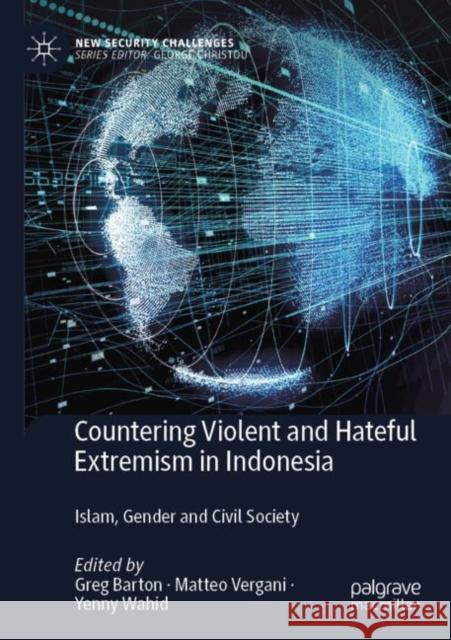Countering Violent and Hateful Extremism in Indonesia: Islam, Gender and Civil Society » książka
Countering Violent and Hateful Extremism in Indonesia: Islam, Gender and Civil Society
ISBN-13: 9789811620348 / Angielski / Miękka / 2022 / 363 str.
Countering Violent and Hateful Extremism in Indonesia: Islam, Gender and Civil Society
ISBN-13: 9789811620348 / Angielski / Miękka / 2022 / 363 str.
(netto: 384,26 VAT: 5%)
Najniższa cena z 30 dni: 385,52
ok. 22 dni roboczych.
Darmowa dostawa!
This book provides an overview of preventing and countering violent extremism (P/CVE) to assist readers in developing a more complete understanding of P/CVE and the issues of radicalisation, disengagement and rehabilitation. It shines a light on some key P/CVE programmes and initiatives in Indonesia and is written to facilitate understanding preventing and countering violent extremism in a larger frame. It is intended to be of interest to civil society activists, security practitioners, communities, policy makers and researchers alike. It represents a collaboration, born out of partnership in the field, that brings together academic researchers and civil society activists from Indonesia and Australia. Around the world, far too little is known about Indonesian society in general and Indonesian Islam and civil society in particular. This is, in large measure, because of the barrier of language. This book represents a small, but hopefully significant, contribution to opening a window to Indonesia. The focus of this book is on the challenging issues entailed with violent and hateful extremism. The initiatives it portrays and the people it describes, and whose voices it channels, are filled with the hope of transforming the world to make it better.
This book provides an overview of preventing and countering violent extremism (P/CVE) to assist readers in developing a more complete understanding of P/CVE and the issues of radicalisation, disengagement and rehabilitation. It shines a light on some key P/CVE programmes and initiatives in Indonesia and is written to facilitate understanding preventing and countering violent extremism in a larger frame. It is intended to be of interest to civil society activists, security practitioners, communities, policy makers and researchers alike. It represents a collaboration, born out of partnership in the field, that brings together academic researchers and civil society activists from Indonesia and Australia. Around the world, far too little is known about Indonesian society in general and Indonesian Islam and civil society in particular. This is, in large measure, because of the barrier of language. This book represents a small, but hopefully significant, contribution to opening a window to Indonesia. The focus of this book is on the challenging issues entailed with violent and hateful extremism. The initiatives it portrays and the people it describes, and whose voices it channels, are filled with the hope of transforming the world to make it better.











